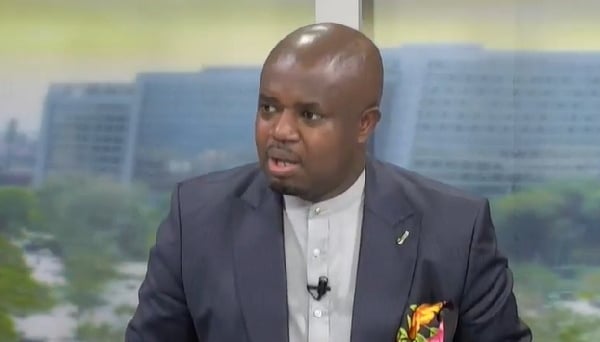The ongoing political tension in Ghana has escalated with a scathing attack by Godwin Edudzi Tamakloe, the Director of Legal Affairs for the National Democratic Congress (NDC), against former Attorney General Godfred Yeboah Dame. Tamakloe’s criticism stems from Dame’s earlier call for “good men” to speak out amidst the controversy surrounding the suspension of Chief Justice Gertrude Torkonoo. The crux of Tamakloe’s argument rests on the perceived hypocrisy in Dame’s plea, given his own alleged conduct during the prosecution of Dr. Cassiel Ato Forson, the current Finance Minister, while he served as Minority Leader. Tamakloe’s statement paints a picture of Dame as someone lacking integrity, particularly in his pursuit of a conviction against Dr. Forson, accusing him of acting without conscience in a case that the NDC maintains was politically motivated.
The backdrop of this exchange is the recent suspension of Chief Justice Torkonoo, a decision made by President John Dramani Mahama following consultation with the Council of State. Although the exact reasons for the suspension haven’t been publicly disclosed, it has sparked intense debate and fueled partisan divisions. Dame’s call for “good men” to voice their opinions on the matter appears to have been a catalyst for Tamakloe’s pointed response. By connecting Dame’s plea with the Forson case, Tamakloe seeks to undermine Dame’s credibility and portray him as unfit to champion calls for ethical conduct.
Tamakloe’s statement centers on the perceived injustice faced by Dr. Forson during his prosecution. He accuses Dame of pursuing the case with undue zeal, driven by a desire for conviction rather than a commitment to justice. The case, which revolved around allegations of causing financial loss to the state related to the procurement of ambulances, has long been contested by the NDC, who claim it was a politically motivated attempt to discredit Dr. Forson. Tamakloe’s remarks revive these allegations, framing Dame’s actions as a calculated attack on a political opponent. The statement essentially accuses Dame of using his position as Attorney General to pursue a personal vendetta, undermining the principles of fairness and impartiality that should guide legal proceedings.
The timing of Tamakloe’s statement is significant. It comes amidst heightened political sensitivity following the Chief Justice’s suspension, a move that has drawn criticism from various quarters. By invoking the Forson case, Tamakloe strategically links the current controversy to past grievances, creating a narrative that suggests a pattern of political maneuvering. This strategy aims to portray the ruling party as consistently engaging in actions that undermine democratic institutions and target political rivals. Furthermore, it serves to deflect attention from the Chief Justice’s suspension by focusing on Dame’s alleged past misconduct.
The accusation of a politically motivated prosecution against Dr. Forson is a recurring theme in the NDC’s narrative. They argue that the case was fabricated to damage Dr. Forson’s reputation and hinder his political career. Tamakloe’s statement reinforces this narrative, painting a picture of a politically weaponized justice system. This accusation, if substantiated, raises serious concerns about the integrity of the legal process and the potential for abuse of power. It also highlights the deep-seated distrust that exists between the ruling party and the opposition, further exacerbating the already tense political climate.
In essence, Tamakloe’s statement is more than just a personal attack on Godfred Yeboah Dame. It is a broader indictment of what the NDC perceives as a pattern of politically motivated prosecutions and an abuse of power. By linking Dame’s call for “good men” to speak out with his alleged conduct in the Forson case, Tamakloe seeks to discredit Dame’s moral authority and cast doubt on the motivations behind his public statements. The statement is a calculated move in the ongoing political battle, designed to rally support for the NDC while simultaneously casting a shadow over the actions of the ruling party. It contributes to the ongoing polarization of Ghanaian politics and raises fundamental questions about the independence of the judiciary and the integrity of the legal process.














